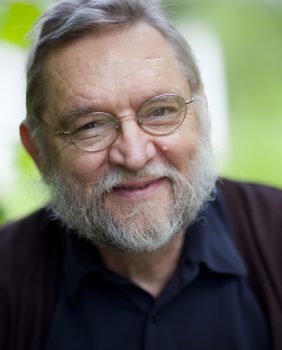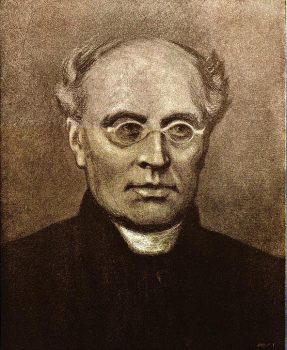Archive for December, 1985
Emotional transgressions
Issue 4/1985 | Archives online, Fiction, Prose
Three extracts from the novel Harjunpää ja rakkauden lait (‘Harjunpaa and the laws of love’). Introduction by Risto Hannula
It was a few minutes to two, and Harjunpää was still awake, lying so close to Elisa that he could feel her warmth. He kept his eyes open, staring into the night through the crack between curtains. Once again the boiler of the central heating plant started up, and the smoke began to rise like a stiff column in the cold. Another fifteen minutes had passed, and morning was a quarter of an hour closer. He squeezed his eyes shut and tried to concentrate on Elisa’s breathing and the sleepy snuffling of the girls, but his thoughts still wouldn’t leave him in peace. Inexplicably, he felt there was something wrong, that the darkness exuded some kind of threat, that he’d left something undone or had made some kind of mistake.
He swung his feet onto the floor and got up as quietly as he could. But all his care was wasted, he should have known that.
‘What’s the matter?’ Elisa asked sleepily.
‘I just can’t get to sleep.’
‘Again … ‘
‘I can’t help it. I wonder if there’s a bottle of brew left.’
‘Sure. But listen …’
Pipsa turned over in her crib, rattling the sides, groped around a bit and began to suck her pacifier so you could hear the quiet sucking noises.
‘Yeah?’
‘Maybe you could see a doctor. You could ask for some mild … ‘ More…
Poems
Issue 4/1985 | Archives online, Fiction, poetry
Introduction by George C. Schoolfield
Birds of passage
Ye fleet little guests of a foreign domain,
When seek ye the land of your fathers again?
When hid in your valley
The windflowers waken,
And water flows freely
The alders to quicken,
Then soaring and tossing
They wing their way through;
None shows them the crossing
Through measureless blue,
Yet find it they do.
Unerring they find it: the Northland renewed,
Where springtime awaits them with shelter and food,
Where freshet-melt quenches
The thirst of their flying,
And pines’ rocking branches
Of pleasures are sighing,
Where dreaming is fitting
While night is like day,
And love means forgetting
At song and at play
That long was the way. More…


